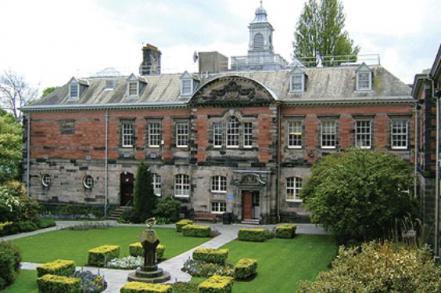The LLM is an atypical program and its proceedings differ from Masters of Law in France. This distinctive aspect concerns the organization of the program, the work that students are expected to provide and the assessment method.
A first difference that can be noticed is the way classes are chosen. Indeed, each semester begins by an induction week that lasts one or two weeks. During this period, students attend introductory classes and are given more information on the syllabus. The attendance to these classes is designed to help students to choose which courses they will study during the semester. Furthermore, students are given general information on the proceedings of the LLM all through this period and can attend other classes whose purposes are to help to use the Internet Technologies, the library, I even attended a module named “how to survive the LLM”! The induction week ends up by a trip that takes place outside the university (a manor for Dundee, a castle for Queen Mary) where students and professors spend two days together. This is the opportunity for students to get to know their fellow classmates and professors. Various activities are held (educational, hiking etc.). The aim being that students socialise not only with students but also with professors for them to feel confortable in their new environment.
It is advisable to be aware before enrolling for a LLM that this is a very demanding diploma: the amount of work expected is significant. Although we have about six hours of classes every weeks, students are expected to work about forty hours by their own every week. The keyword for seminars is autonomy: students are given reading lists with opened questions that will be treated during classes. The aim of classes is not so much to discover a new topic (students are supposed to have done all the readings) but to debate, to comment and make critics about what they have read. In other words, classes are like debates rooms with fellow students and professors.
Finally, another striking difference is the assessment method. Generally, one or two essays have to be submitted during the semester. Their importance is not to be misconstrued as they represent up to 50% of the overall grade of the module. We enjoy great freedom concerning the structure of the essay: no particular methodology is required. French students can then be relieved as the binary form is not compulsory! Besides, a revision class is organised before the examination. The aim of this class is twofold: professors make sure students have understood every important issues of the class and they give some information on the proceedings and the expectations for the exams.
During the academic year 2012/2013, I was doing a double postgraduate diploma: a French Master 2 at the university of Toulouse and a LLM at the University of Dundee in Scotland in Comparative and European Private International Law. This year has been very enriching as I have been taught private international law from both a Civil and Common law perspective. However, I will be doing a second LLM during the next academic year in International and Comparative Dispute Resolution at Queen Mary University of London. I acknowledge that this is a singular choice but this is the result of a careful consideration.
My professional project is to practice as a lawyer. Thus, this second LLM will enable me to be specialised in that field. Originally, I was a bit reluctant to do this extra year and I lengthily wonder about its relevancy but the willingness to study dispute resolution, the reputation of the university and of the diploma associated with its syllabus (interesting classes, a moot court competition) convinced me not to miss this opportunity. Private international law has always been a field of great interest to me. This branch of law is promising and experiences a booming development at the European level as evidences the recent adoption of Regulation 1215/2012. What is more, private international law and international arbitration are two fields that often interact with each other. Therefore, before practising, I really wanted to have an academic background in both procedural and substantive law that best prepares me to a wide range of situations I may face in my professional career.
Maxime Discours
For further information on
- the LLM in International and Comparative Dispute Resolution from Queen Mary University of London, click here.
- the LLM in Comparative and European Private International Law from the University of Dundee, click here.
Plus d'informations sur les LLM sur FindyourLLM.



